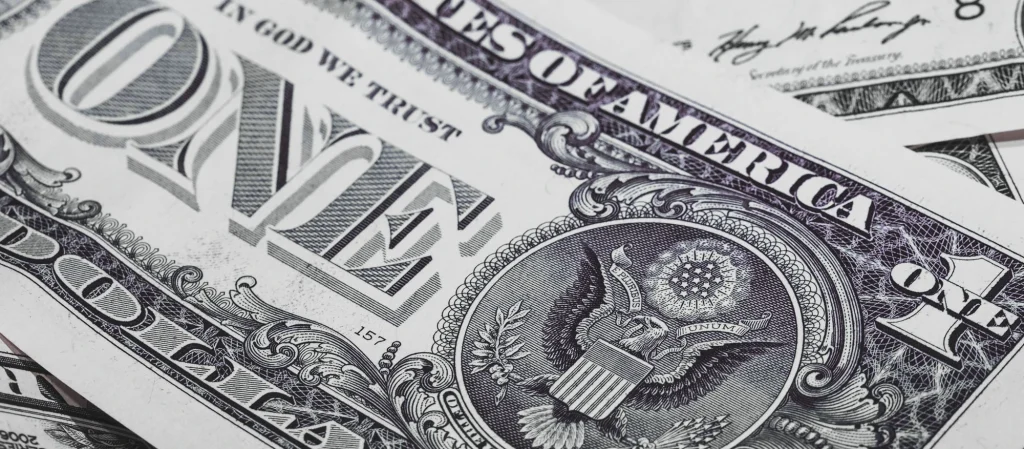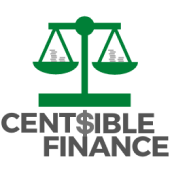
A penny saved is a penny earned. You’ve heard me say this before.
I’m a big proponent of saving… Saving for a rainy day and saving for retirement.
But there’s another saying that applies to just about everything in life: Too much of one thing is good for nothing.
And, yes, that goes for saving, too.
I know that might sound strange coming from me, but I’ll explain what I mean in a second…
The Earlier, the Better I’ve mentioned before that, whether you’re younger and just starting out in the workforce, or you’re older and preparing to exit, retirement really isn’t that far away. And I showed you how the earlier you start saving for retirement, the better. Let’s revisit that briefly…
Note these two dollar amounts: $107,676 and $37,881. To you, they may seem like Person A’s income and Person B’s income, but they’re something else… According to Bankrate’s Retirement Calculator, that’s how much you could accumulate in your retirement account by age 67, if you started saving at age 45 and 55, respectively.
So, if you have a $30,000 annual salary and opened a retirement account at the age of 45, such as a 401(k) or an Individual Retirement Arrangement (aka Individual Retirement Account, IRA), and you saved 8% of your annual salary, at a 7% return (the average you can expect to earn), you’d have $107,676 in your account by the time you turn 67.
But, everything being the same, except you decide to open a retirement account 10 years later, at age 55, you’d have $37,881 in your account, instead.
If we started at an earlier age, like 40, the difference would be even more drastic. The math here is complicated, but it all has to do with compound interest (which you can read about here).
So, at the time when I showed you this example, I stressed how important it is to save for your retirement… as much as you can and as early as you can. (If you’re ready and you want to set up your own IRA, you can find out how in last week’s letter.)
Congrats, if you’ve made the decision to do so. But be careful not to contribute too much…
Retirement “Rich” Again, too much saving can be good for nothing. Let’s say I’ve become so motivated to set myself up nicely for my retirement, that I start contributing $5,000/year to my 401(k). Now, let’s fast-forward five years…
At a 7% return, I’d already have almost $30,000 put away for my retirement. That’s pretty good. But what if that’s the only savings I had?
What if all my motivation was going toward focusing on my retirement but not toward my life in the short term? And what if something unexpected just came up? I’ve talked about the “rainy-day savings” before.
This is when I said: Life is full of surprises. Some days will go according to plan. But some days will be the exact opposite…
When something unexpected happens—say, a leak in your bathroom, or a medical expense your health insurance doesn’t cover, or a flat tire—we have to pay for it somehow. That’s where saving comes in. Short-term and/or emergency savings… for a rainy day, or for something wonderful, like having a baby or buying a home.
A newborn is another mouth to feed. You’ll need savings for when the baby comes. Or what if you start thinking about moving from the apartment you’re renting into a home you’d like to purchase? You’ll likely need a good chunk of change to cover the down payment. (I recommend putting at least 20% down on a home, by the way.)
Going back to the scenario I mentioned earlier, if I have $0 in savings, but $30,000 saved for retirement, that $30,000 does absolutely nothing for me in case of an emergency or a big life event like a baby or purchasing a home.
Why? Because you can’t really touch your retirement savings… What I mean by that is, you will probably pay a penalty if you do. You may owe the IRS if you withdraw money from your retirement account before you turn 59 ½. And nobody likes to pay out extra money.
If you’re already past that age, you still don’t want to have to borrow from your retirement to cover a large expense, because you’ll be stealing from your wealth. And with exceptions, like the CARES Act, that may have cut out those penalties for withdrawing from your retirement account early, you’re still stealing from your wealth. I’ll give you an example…
Let’s say I need $5,000 to pay for some emergency repairs in my home. Well, since I have no emergency savings, I decide to borrow the $5,000 from my 401(k). At the same 7% return I was earning and a generous 3% interest I might pay for borrowing from myself, I’d lose more than $1,000 I could’ve earned, had I not touched the account. But that’s only if I pay myself back within a year, which may not be realistic. This is what I mean by: Too much of one thing is good for nothing. By saving only for my retirement, I’ve become (retirement) savings “rich” but cash “poor.” And it doesn’t end there.
If I don’t put $5,000 back into my retirement account within a year, I pay the tax penalty and could end up losing out on more than $70,000! (If you’re in a situation where you’re considering borrowing from your retirement, you can use this calculator to see what it would cost you.) This is why we’re on the journey to achieving financial wellness. Part of financial wellness is living a lifestyle that helps us avoid ever ending up in a situation like this.
Rainy Days First, Retirement Second Now, I’m not saying don’t save as much for retirement as you can, as early as you can. I still believe you should. I personally think it’s a wonderful thing to be in a position where you have wealth stored up for when it’s time to retire. Almost half of Americans age 55 and older have no retirement savings. So, believe me, it’s something to be thankful for.
But you should always have enough cash saved up first.
I recommend saving at least $1,000 first. Then—if you’re in debt—when you work your way out of debt (not including the mortgage), save some more (I recommend three to six months’ worth of living expenses). Then, start saving for retirement (I recommend 15% of your gross income, which is before taxes).
So, save for a rainy day first and foremost. You never know what life will throw at you. And the best thing to do is avoid debt (or more of it) like using a credit card or personal loan, or by borrowing from your retirement to cover an emergency. Either way, you’re stealing from your own wealth potential. Think of the money—and heartache—you’ll save yourself, when you can pay cash for when the unexpected happens. Think of how much energy, time, and happiness you can spend on those big life events I mentioned earlier (the new baby or the new home) when you know you have the savings ready. Only Human I know me talking about this today may be painful for you. Maybe you’ve already borrowed from your retirement, and now you’re regretting it. Maybe you’re dealing with an emergency this very moment and you had to use a credit card or get a personal loan to pay for it. Maybe you have no savings right now. So, I understand if this isn’t a pleasant subject. But I want you to know two things: One, you’re not alone. According to a Bankrate survey, 60% of Americans said they wouldn’t have the savings to cover a $1,000 emergency. So many of us are struggling. You’re not stupid. You’re human. And two, there’s hope. It’s never too late to start making some changes in your life. The best thing you have going for you now is the knowledge you didn’t have yesterday. So, let this moment be the moment you make some changes. And read “The Path to Freedom Starts with a Plan,” “How to Cut Back,” and “The Answer to Finding More.” They’ll help you get on the right path.
And listen. If you begin to get down on yourself… discouraged… or regretful, just remember: It’s not worth your time or energy thinking about what you could have, should have, or would have done differently.
Today is an opportunity to start anew… To do what you can now, to put future you in the best position possible… And to start saving.
Even if you don’t know what you’re saving for, you never know when that money will come in handy.
With gratitude,

Melody C. Kerr, MS
Certified Financial Coach
P.S. If you need help getting started or feel like you’ve been saving too much for retirement and not enough for an emergency, I can help you. Schedule a session with me right here, and we’ll work on a plan for you together.

